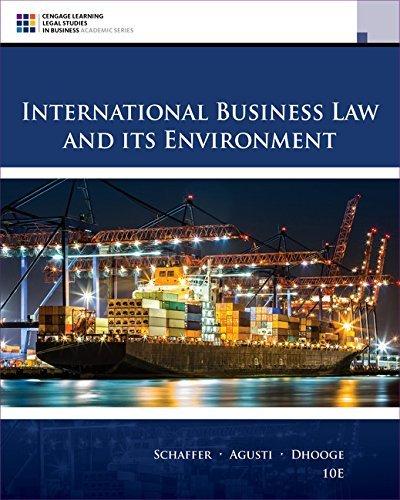Chrysotile asbestos poses significant risks to human health. It is generally recognized to cause lung cancer and
Question:
This case involved a ban on asbestos products instituted by the French government, which had previously been a large importer of chrysotile asbestos. The ban entered into force on January 1, 1997. Canada, as the second largest asbestos producer in the world, challenged the prohibition in the WTO. It claimed that the French ban violated several articles of the GATT in addition to the Agreement on Technical Barriers to Trade (TBT Agreement), which ensures that domestic product standards and regulations do not create unnecessary trade barriers. The EC contended that the ban was necessary to protect both workers subject to prolonged asbestos exposure and members of the general population who could be subject to occasional exposure, and that it was therefore permissible under GATT Article XX(b). Article XX(b) allows domestic measures that affect foreign products if those measures are "necessary to protect human, animal or plant life or health."
1. Was there any question that France's ban would have a discriminatory impact on Canadian asbestos products?
2. If France's ban had been based on grounds other than protecting the health of French residents, would it have been upheld? Do nations have greater discretion to discriminate against foreign products if they base the discrimination on health concerns?
Fantastic news! We've Found the answer you've been seeking!
Step by Step Answer:
Related Book For 

International Business Law And Its Environment
ISBN: 9781305972599
10th Edition
Authors: Richard Schaffer, Filiberto Agusti, Lucien J. Dhooge
Question Posted:





